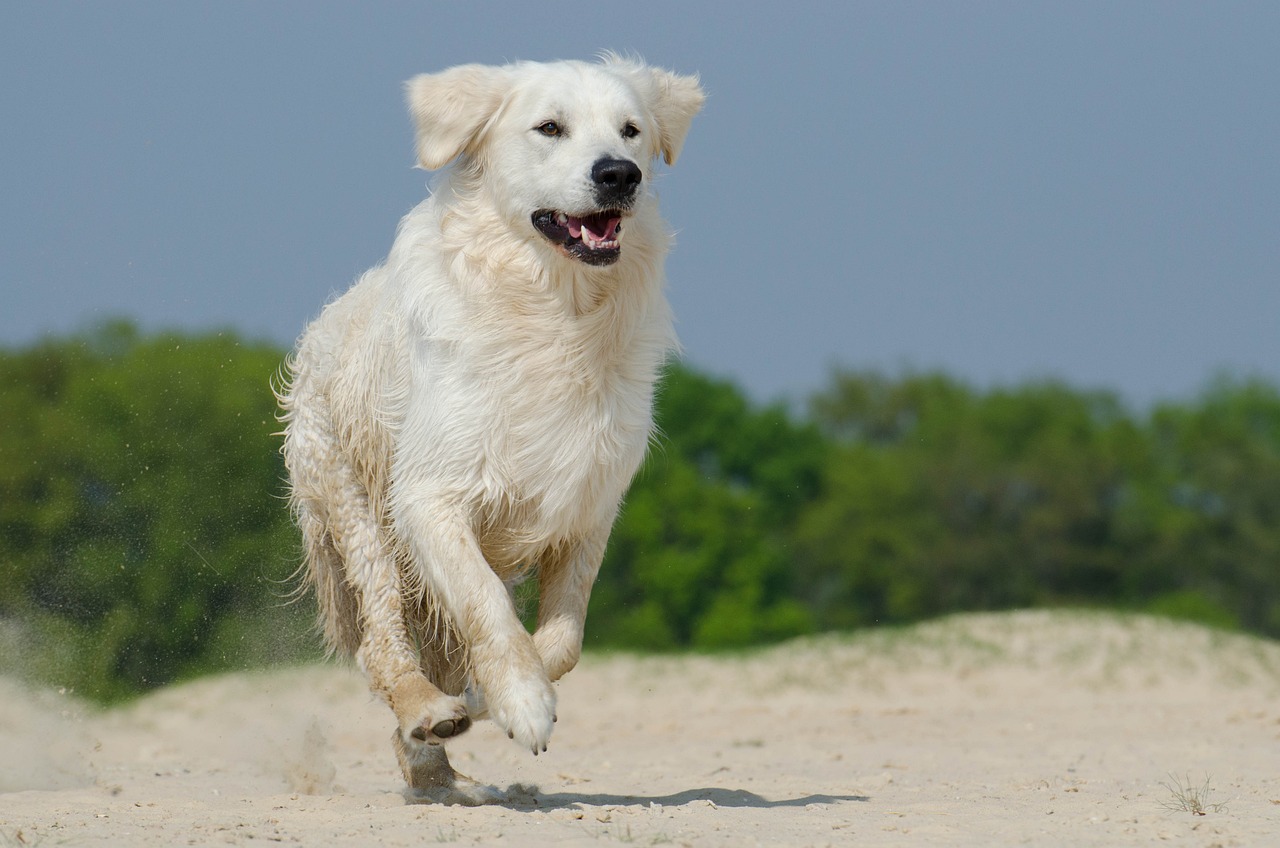The Golden Retriever is one of the most beloved dog breeds worldwide, known for its friendly and gentle temperament.
This article aims to provide detailed information about the breed’s characteristics, care needs, and unique traits. Whether you’re a dog enthusiast or a prospective owner, understanding the Golden Retriever’s history, temperament, and health requirements is essential for making an informed decision.
Golden Retriever : A Complete Guide for Dog Lovers
The Origins of the Golden Retriever
Golden Retrievers originated in Scotland in the mid-19th century. They were bred by Lord Tweedmouth, who aimed to create a breed that was adept at retrieving game from water and land. By crossing the now-extinct Yellow Retriever with the Tweed Water Spaniel (and later adding Bloodhounds, Irish Setters, and more), Lord Tweedmouth developed the breed we know today for its excellent hunting and retrieving abilities.
Notably, the Golden Retriever was initially used for hunting and retrieving waterfowl due to its soft mouth, which allows it to carry prey without damaging it. The breed’s popularity grew beyond hunting as people recognized its loyal and gentle nature, making it a perfect family companion.
Physical Characteristics of the Dog
Golden Retrievers are medium to large-sized dogs with a well-balanced, muscular build. They typically stand between 21.5 and 24 inches tall (55-61 cm) and weigh between 55 and 75 pounds (25-34 kg). The breed’s most distinctive feature is its dense, water-repellent double coat, which ranges in color from light golden to dark golden shades.
The Golden Retriever’s expressive eyes, long, floppy ears, and friendly face give it an inviting and intelligent appearance. Their tails are usually straight and feathered, adding to their elegant look. Compared to similar breeds like the Labrador Retriever, Golden Retrievers have longer, wavier coats and a more refined build.

The Temperament of the Golden Retriever
Golden Retrievers are renowned for their friendly, tolerant, and gentle nature. They are extremely social dogs, thriving on human interaction and affection. Energetic yet adaptable, they make excellent companions for both children and adults. Their patient and playful behavior makes them ideal for families, including those with young kids.
In terms of behavior with other pets and strangers, Golden Retrievers are generally very friendly and open. They are not typically aggressive, making them poor guard dogs but perfect for households looking for a loving and sociable pet.
Training a Golden Retriever is usually straightforward, as they are intelligent and eager to please. Positive reinforcement techniques work well, and they excel in obedience training and agility activities. This breed is well-suited for active families or individuals who can provide regular interaction and mental stimulation.
Care Requirements
Golden Retrievers have specific grooming and exercise needs:
- Coat Care: Regular brushing is essential due to their dense double coat, which sheds heavily, especially during seasonal changes. Weekly brushing helps manage shedding and prevents matting. Occasional baths keep their coat clean and healthy.
- Exercise Needs: Golden Retrievers are active dogs that require at least one hour of exercise daily. Long walks, play sessions, and activities like swimming are great for meeting their physical needs. They thrive in homes with a yard, but they can also adapt to apartment living as long as they receive sufficient outdoor activity.
- Hygiene: Ear cleaning is vital for Golden Retrievers, as their floppy ears can trap moisture, leading to infections. Regular nail trimming and dental care are also important to maintain their overall health.
Health Issues Common in Golden Retrievers
Golden Retrievers are generally healthy, but they are prone to specific health conditions:
- Hip Dysplasia: A common issue in large breeds, hip dysplasia can affect a Golden Retriever’s mobility and comfort. Regular vet check-ups and maintaining a healthy weight are crucial for prevention.
- Heart Conditions: Golden Retrievers may develop heart issues like subvalvular aortic stenosis (SAS), requiring monitoring and early intervention.
- Cancer: Unfortunately, Golden Retrievers have a higher risk of developing cancer, particularly hemangiosarcoma and lymphoma.
The average lifespan of a Golden Retriever is around 10 to 12 years. Ensuring a balanced diet, regular veterinary visits, and an active lifestyle can help maximize their health and longevity.

Life Expectancy and Quality of Life for Golden Retrievers
Golden Retrievers live, on average, for 10 to 12 years, although some may live longer with proper care. Factors influencing lifespan include genetics, diet, and the overall quality of life. Owners can enhance their dog’s longevity by providing a balanced diet rich in nutrients, engaging activities, and regular health screenings.
Stimulating activities like puzzle toys, agility training, and socializing with other dogs are excellent for maintaining a Golden Retriever’s mental and physical well-being.
Pros and Cons of Owning a Golden Retriever
Advantages:
- Friendly and loyal, making them perfect family pets.
- Highly trainable and adaptable.
- Good with children, other pets, and strangers.
Disadvantages:
- Requires regular grooming due to shedding.
- High energy levels necessitate daily exercise.
- Prone to health issues such as hip dysplasia and cancer.
What You Need to Know Before Adopting
Before adopting a Golden Retriever, consider whether your lifestyle aligns with the breed’s needs. Ideal owners are active, have ample time for daily exercise and training, and live in an environment that accommodates a medium to large dog. Homes with children or other pets are well-suited for this breed, given their friendly and adaptable nature.
However, adopting a Golden Retriever requires a commitment to grooming, exercise, and regular veterinary care. It is important to research and connect with reputable breeders or rescue organizations to ensure you get a healthy and well-cared-for dog.
Comparing Golden Retrievers with Labrador Retrievers
While Golden Retrievers and Labrador Retrievers share similarities, such as size and temperament, key differences exist. Golden Retrievers have a longer, wavier coat compared to the shorter, dense coat of the Labrador. Additionally, Golden Retrievers tend to be more tolerant of smaller spaces like apartments, as long as they receive sufficient exercise, while Labradors are generally more energetic and may require larger outdoor spaces.
Golden Retrievers are affectionate, intelligent, and loyal companions, well-suited for active families and individuals alike. Understanding their care requirements and potential health concerns is crucial for ensuring a happy and healthy life for your Golden Retriever.
Prospective owners should seek thorough information and consult breeders or associations to make an informed decision about adopting this wonderful breed.








